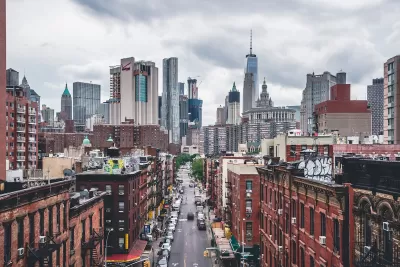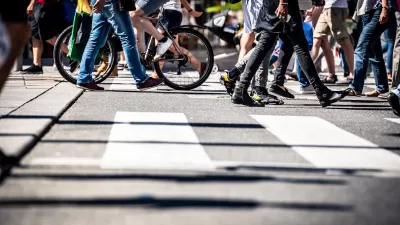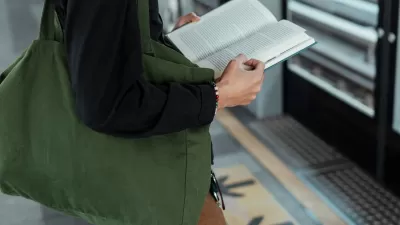One author offers a framework for resilience that rethinks common assumptions about the inevitability of cities as we know them.

In a piece for Next City, Stephanie Wakefield outlines key points from her new book, Miami in the Anthropocene: Rising Seas and Urban Resilience, which calls for a rethinking of the role urban places play in building resilience and mitigating the impacts of climate change.
With the urban envisioned as the inevitable form of the twenty-first century, it seems the only question mark is whether urban spaces and processes will be more or less resilient or equitable, smart or inclusive.
Wakefield proposes an alternate paradigm for approaching the future of cities, noting that the urban form as we know it may not survive changing conditions. “Will and should the urban as we know it actually survive the upending impacts of climate change or human responses?”
Wakefield ponders, “Rather than an endless expanse of cities and urbanization processes with seemingly no terminus — the latter destined to be but fodder for ever greater resilience of the former — might the Anthropocene’s human and nonhuman dislocations produce other spaces, processes and imaginaries entirely?”
FULL STORY: Theorizing Cities Under the Anthropocene

Planetizen Federal Action Tracker
A weekly monitor of how Trump’s orders and actions are impacting planners and planning in America.

Congressman Proposes Bill to Rename DC Metro “Trump Train”
The Make Autorail Great Again Act would withhold federal funding to the system until the Washington Metropolitan Area Transit Authority (WMATA), rebrands as the Washington Metropolitan Authority for Greater Access (WMAGA).

The Simple Legislative Tool Transforming Vacant Downtowns
In California, Michigan and Georgia, an easy win is bringing dollars — and delight — back to city centers.

The States Losing Rural Delivery Rooms at an Alarming Pace
In some states, as few as 9% of rural hospitals still deliver babies. As a result, rising pre-term births, no adequate pre-term care and harrowing close calls are a growing reality.

The Small South Asian Republic Going all in on EVs
Thanks to one simple policy change less than five years ago, 65% of new cars in this Himalayan country are now electric.

DC Backpedals on Bike Lane Protection, Swaps Barriers for Paint
Citing aesthetic concerns, the city is removing the concrete barriers and flexposts that once separated Arizona Avenue cyclists from motor vehicles.
Urban Design for Planners 1: Software Tools
This six-course series explores essential urban design concepts using open source software and equips planners with the tools they need to participate fully in the urban design process.
Planning for Universal Design
Learn the tools for implementing Universal Design in planning regulations.
Smith Gee Studio
City of Charlotte
City of Camden Redevelopment Agency
City of Astoria
Transportation Research & Education Center (TREC) at Portland State University
US High Speed Rail Association
City of Camden Redevelopment Agency
Municipality of Princeton (NJ)





























